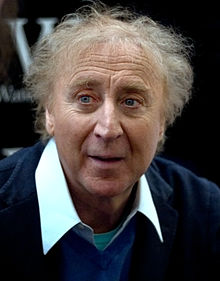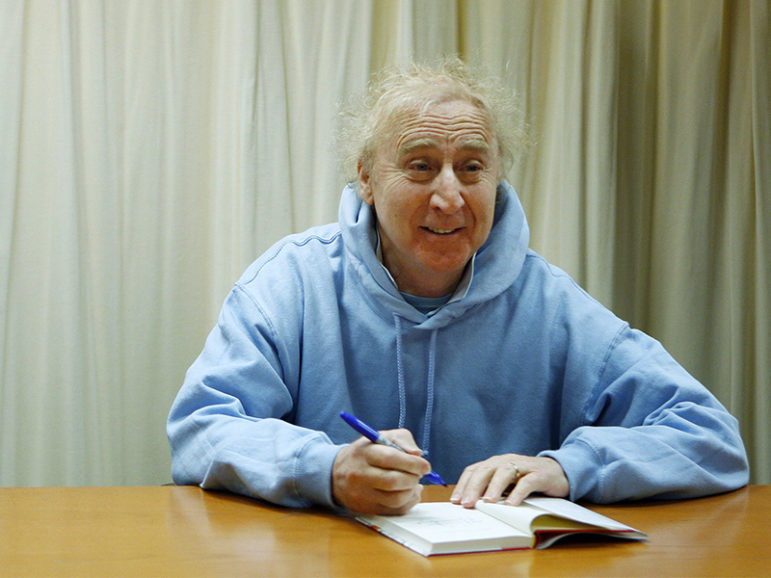(RNS) It has been a bad few weeks for iconic Jewish actors.
First: Fyvush Finkel, veteran of Yiddish theater and both the small and large screens, died at the age of 93.
Second: Steven Hill, the resolutely observant Jewish star of “Mission: Impossible” and “Law and Order,” died at the age of 94.
And yesterday, the entertainment world lost Gene Wilder, at the age of 83.
There were few comic actors as beloved as Wilder, and few who were as recognizably Jewish. (Ironic, though: Wilder, raised as a Jew, had basically stripped his religious commitment down to the golden rule and described himself as a “Jewish-Buddhist-atheist.”)

Gene Wilder (1933-2016)
As a memorial tribute to Wilder, here are his most “Jewish” cinematic moments.
- “The Producers.” It wasn’t only that both Wilder and his co-star, the mad genius Zero Mostel, and the writer and director, Mel Brooks, were Jewish. Or that the characters, Bialystock and Bloom, were obviously Jewish (though the word “Jewish” was never uttered in the movie). It is that the plot was quintessentially Jewish. Think of it: a parody of bad taste, taken to its most extreme — a musical based on the worst possible subject (“Springtime for Hitler”). It’s the native Jewish idea of diminishing and ultimately defeating our enemies by ridiculing them. It’s called Purim.
- “The Frisco Kid.” There is a reason why this brilliant comedy is so often shown and re-shown at synagogues and Jewish community centers. It is a funny, yet tender meditation on the tenacity of Jewish identity. Rabbi Avram Belinski arrives from Poland, on his way to his new congregation in San Francisco. Despite various adventures and misadventures — and even in the face of torture — he absolutely refuses to part with the Torah scroll that he is bringing to his new community. It’s also a buddy film, co-starring Harrison Ford, which turns into a sweet story of interfaith (if you can say that Ford’s outlaw character actually has a faith) friendship and respect.
I have always loved this mini-speech by Harrison Ford — his essential message to Avram.
You are a rabbi. You can fall in the mud, you can slip on your ass, you can travel in the wrong direction. But even on your ass, even in the mud, even if you go in the wrong direction for a little while, you’re still a rabbi! That’s what you are.
I would love to put that on my resume.
- “Young Frankenstein.” What could be more Jewish than Wilder’s Frankenstein insisting on the proper pronunciation of his name (“No, it’s pronounced ‘Fronkensteen!'”)? To go from Frankenstein to Fronkensteen is to go from a blatantly Jewish pronunciation of the surname to a, well, “less Jewish” rendering. To which, of course, Marty Feldman as Igor responds that he might as well be “Eye-gor.” A hysterical lampooning of the Jewish desire to assimilate.
Those were, in my estimation, Gene Wilder’s greatest Jewish moments in film — iconic, eternal moments, if you ask me.
And so, right about now, Gene Wilder, his beloved Gilda Radner, Zero Mostel and Marty Feldman are having a reunion in the World to Come.
And God is laughing his/her _______ off.






